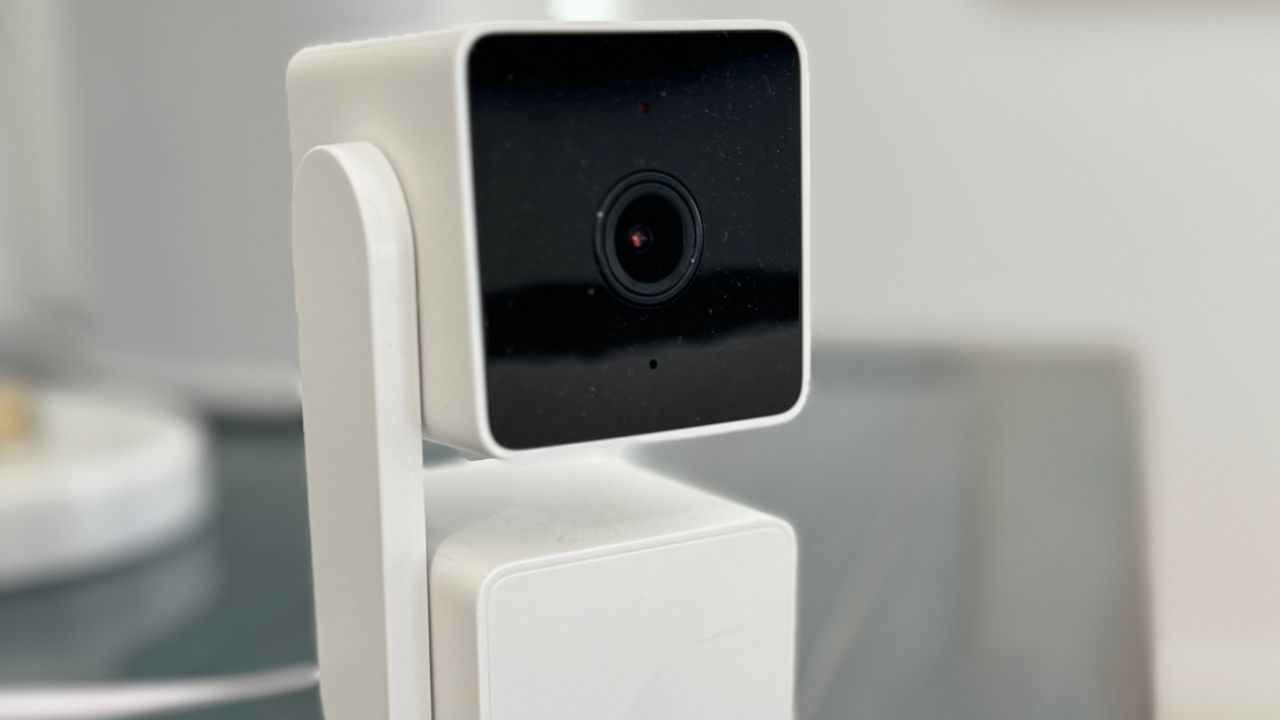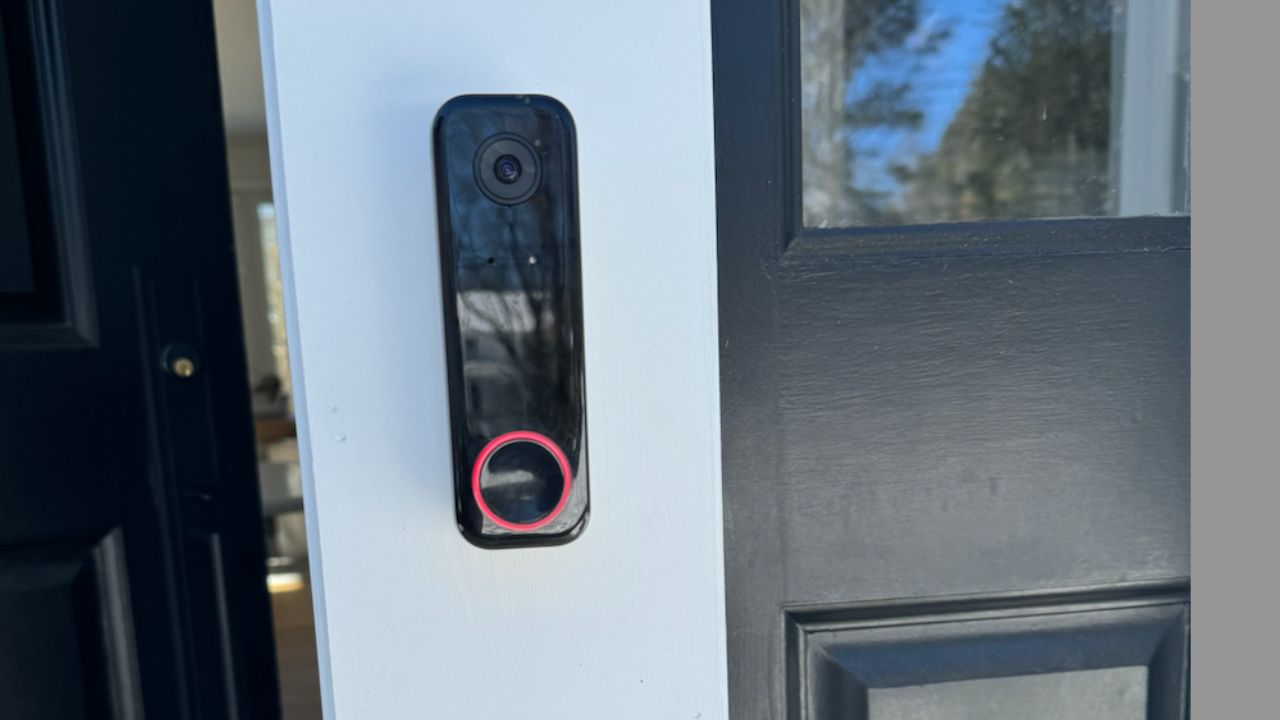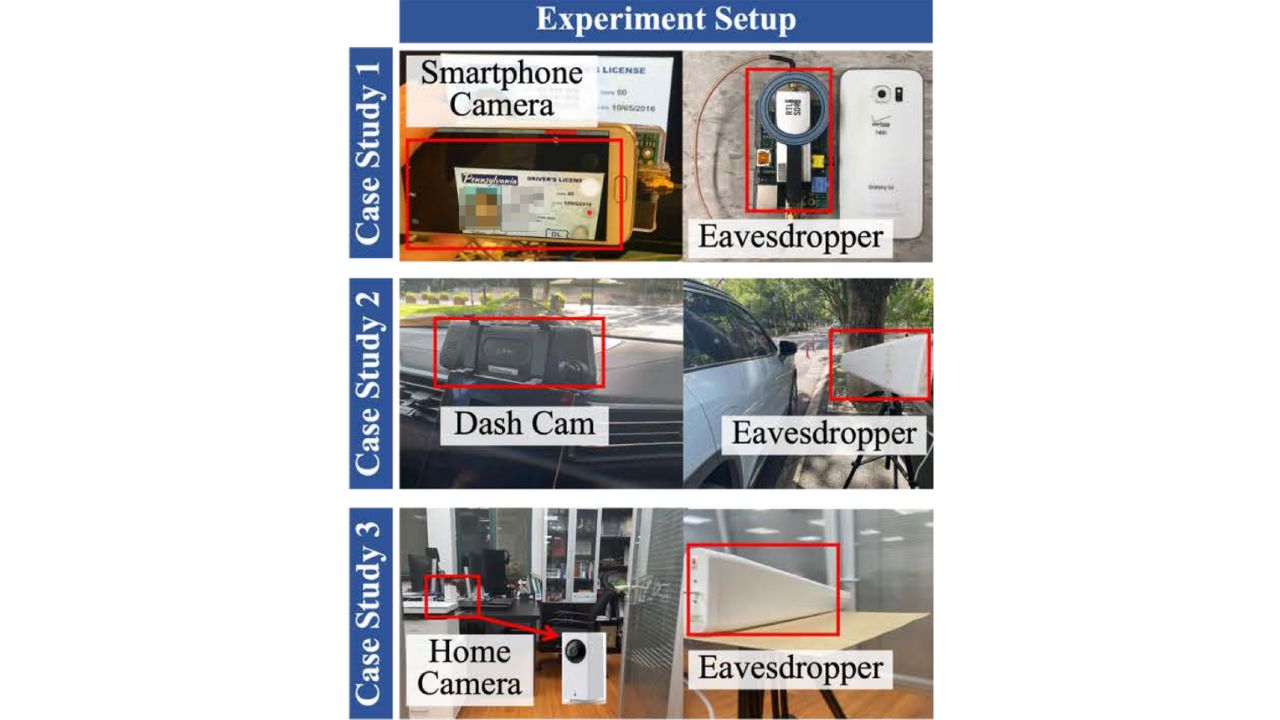Imagine this. You’re sitting in your living room, feeling totally secure behind the watchful stare of your home security camera. But what if I told you that this very camera, designed to protect you, could be betraying your privacy? A disturbing discovery at Northeastern University might have us all looking over our shoulders. Researchers discovered that a stealthy technology called EM Eye allows eavesdropping on our cameras, turning your trusted guardian into an unwitting accomplice.

How this technology eavesdrops on your camera’s inner workings
EM Eye is akin to a tech-savvy burglar, but instead of picking locks, it picks up the electromagnetic whispers of your camera’s inner workings. Like a radio tuned to a secret frequency, EM Eye listens to the radiation emitted by the camera’s wires, which, unbeknownst to many, double as unwilling radio transmitters. The bits and bytes that constitute your video feed are leaking into the ether, and EM Eye catches them all, rendering the walls around your camera as inconsequential as the air it records.

MORE: A PRIVACY WIN: AMAZON LIMITS POLICE ACCESS TO YOUR RING CAMERA
EM Eye also targets dash cams and smartphones
This technique isn’t just about peeping through the looking glass of home security cameras. It extends its reach to the dash cams in your car and even the smartphone you carry.

Credit: Northeastern University
The researchers threw a net over 12 different camera types and discovered the distance from which they could hijack your video varied—a mere footstep away for some, a modest 16 feet for others. The 12 devices included 4 smartphones, 6 smart home cameras, and 2 dash cams. All of these devices were intact with their original packaging prior to testing. Here is the manufacturer, model, and year of each device tested:
- Google Pixel 1 (2013)
- Google Pixel 3 (2018)
- Samsung S6 (2015)
- ZTE Z557 (2019)
- Wyze Cam Pan 2 (2019)
- Xiaomi Dafang (2019)
- Baidu Xiaodu X9 (2023)
- TeGongMao (2023)
- Goov V9 (2022)
- QiaoDu (2021)
- 360 M320 Dashcam (2020)
- Blackview Dashcam (2022)
We reached out to the companies that make these products for a response but had not heard back as of our deadline.
MORE: IS YOUR DOORBELL CAMERA VULNERABLE TO JAMMING OR INTERFERENCE?
EM Eye’s machine learning twist
Now, before you think it’s all a blurry mess, hold on. Yes, the video comes through a bit distorted, like a TV struggling for signal, but then comes the twist—machine learning. The researchers wield this tool like a master artist, refining and enhancing until the picture is almost as good as the original.
MORE: TIPS TO FOLLOW FROM ONE INCREDIBLY COSTLY CONVERSATION WITH CYBERCROOKS
The wake-up call for our reliance on supposedly secure tech
Presented at the prestigious IEEE Symposium on Security and Privacy, EM Eye doesn’t only raise eyebrows; it raises alarms on privacy and security. It’s a wake-up call that the very devices we rely on for security could be turned against us. With a bit of engineering know-how and equipment that won’t break the bank, someone could turn into a video voyeur without leaving a digital footprint.
The brains behind EM Eye aren’t just doomsayers; they’re also problem solvers. They’re calling on camera manufacturers to do the following 3 things:
1) Wrap the camera wires in a special shield, like armor, for the signal. This blocks the EM leakage from escaping.
2) Keep the wires short. The shorter they are, the less leakage there is to capture.
3) Develop better ways to send the camera signal. Think of it like speaking in a secret code that’s harder to crack.
How EM Eye turns cameras into silent spies
The principle at play is electromagnetic induction — a concept that may take you back to high school physics. Those wires inside your camera are not just cables; they’re an open book to anyone with the right antenna.
The researchers’ toolkit included a software-defined radio and a directional antenna, pinpointing the camera like a detective following a trail and turning that electromagnetic signal back into a video.
Unlike other spying tactics that require hacking into a network or intercepting cloud storage, EM Eye is a ghost operation. It doesn’t need to touch your camera’s network or storage, and it’s just as effective on offline devices like dash cams. The potential of EM Eye spans across any device with wires carrying video data like your laptop screen, your tablet, or even your desktop monitor.
MORE: HOW TO DETECT A HACKER SPYING ON YOUR DOORBELL CAMERA
What can you do to help protect your privacy?
While EM Eye technology raises significant privacy concerns, there are steps you can take to mitigate the risks:
For home security cameras
Choose shielded cameras: Look for cameras explicitly advertised as having shielded cables or built-in shielding against electromagnetic interference. This can significantly reduce the leakage of video data.
Minimize cable length: As the researchers noted, shorter cables emit less radiation. Opt for cameras with shorter built-in cables or minimize the length of extension cables used.
Position cameras carefully: Avoid placing cameras near windows or outside walls, where the signal might be more easily intercepted. Consider positioning them indoors, facing outside.
Avoid keeping cameras running inside your home: You may think that having cameras running inside your home can enhance your security and peace of mind, but it can also expose you to new threats. If your cameras are not properly shielded and secured, they can leak video data through electromagnetic signals that can be picked up by malicious actors using EM Eye technology. This can allow them to spy on your private activities, possibly steal your personal information, or even blackmail you.
Disable unnecessary features: Turn off features like night vision or audio recording when not in use. These features can generate additional electromagnetic signals that could be exploited.
Keep firmware updated: Manufacturers may release firmware updates that address security vulnerabilities, including exploits similar to EM Eye. Regularly update your camera’s firmware by opening the app that controls the camera settings.
For other devices
Be mindful of your surroundings: Be aware of your environment and potential eavesdroppers when using devices with video output, such as smartphones, laptops, and tablets. Avoid using them in sensitive areas or situations where privacy is crucial.
Use a webcam cover: By using a webcam cover, you can ensure that no one can see you through your camera without your permission. You can use a webcam cover on any device that has a camera, such as laptops, tablets, smartphones, smart TVs, and gaming consoles. While a webcam cover is best, you can also physically cover your camera with a piece of tape when you’re not using it to prevent unauthorized access.
Use privacy screens: Privacy screens for laptops and tablets can help limit the viewing angle of your screen, making it harder for someone to observe your activity from the side.
Invest in Faraday bag: For high-security needs, consider using a Faraday bag or Faraday shield, which is an enclosure used to block electromagnetic signals, to shield specific devices when necessary.
While these steps can help reduce the risk, they may not provide complete protection against eavesdropping with advanced technology. It’s crucial to stay informed about new developments in EM Eye technology and potential countermeasures. By taking proactive measures and staying informed, you can help protect your privacy in the face of evolving security challenges like EM Eye.
Kurt’s key takeaways
What we have here is not just a piece of research; it’s a statement. A statement that in a world woven with wires and watched by cameras, privacy is a veil that can be lifted by those who know how to pull the strings. As we peer into our screens, perhaps it’s time to ponder who might be peering back.
Is it about time to call on home security and dash camera manufacturers to build them with encryption so we are protected from this type of spying? Let us know in the comments below.
FOR MORE OF MY SECURITY ALERTS, SUBSCRIBE TO MY FREE CYBERGUY REPORT NEWSLETTER HERE
Copyright 2024 CyberGuy.com. All rights reserved. CyberGuy.com articles and content may contain affiliate links that earn a commission when purchases are made.




2 comments
Thank you for this very informative and interesting article. Yes, these companies should be providing encryption or at least An encryption code that can be tweaked by the new owners like a pin number. So the question is also at what cost privacy question mark because they’re going to charge more when they have to protect their wiring. That’s going to put the cost up to the consumer. However, are consumers more concerned with that cost of that camera or of having privacy because, after all, what’s the point of having a camera if not for protwction?
Yes, companies should build dashboard cams and home security with encryption and anything else to keep us safe in our ever-growing, ever-changing eye spy world